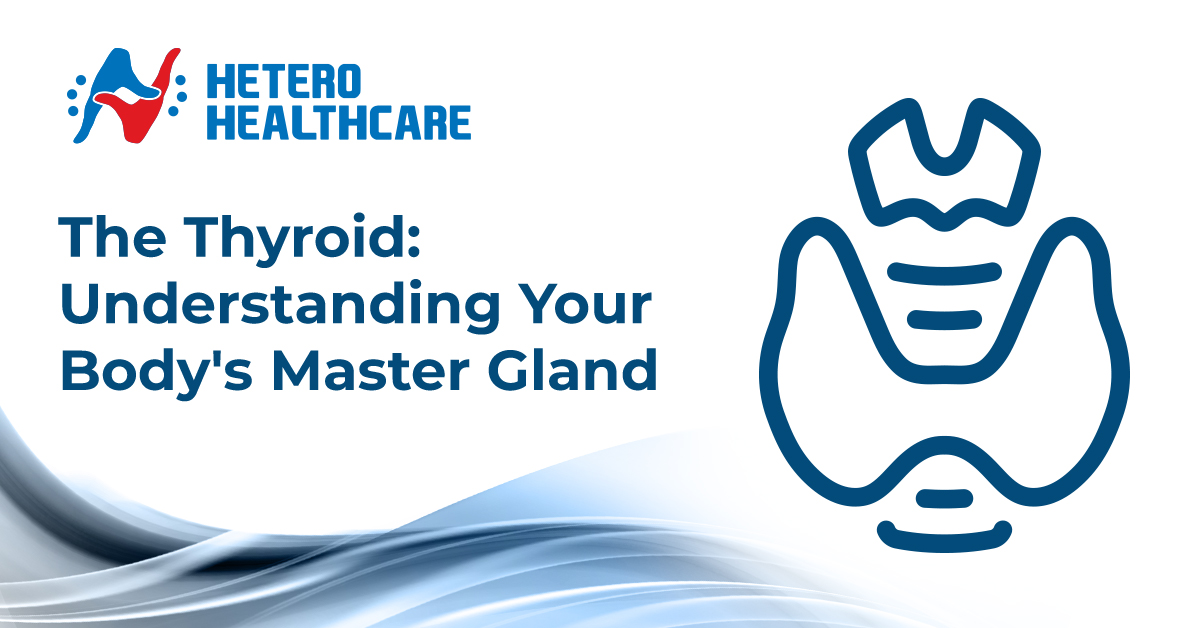Hetero Healthcare
07 Jul 2021

Diabetes is a persistent disease caused due to stress, obesity, and many more factors. It is seen more in people in India and that is why India is known as the "Diabetes capital."
Recent research estimates that 77 million people in India that is approximately 26.1 percent of people in urban areas, and more often, people above 60 years are diagnosed with diabetes, and 9.7 percent of senior citizens in rural areas are diagnosed with diabetes as per the Union Ministry of Family and Welfare (MoFHW).
Diabetes is a chronic disease that occurs due to the imbalance of a hormone called insulin secreted by the pancreas in the body. This hormone regulates the flow of blood sugars.
Diabetes occurs due to two reasons:
a) The pancreas in the body produces excess insulin.
b) The produced insulin does not reach the body cells and is not converted into energy, instead, the blocks remain in the blood, and over time, the excess sugars (hyperglycaemia) in the blood cause many health complications like diabetes. High blood sugars lead to uncontrolled diabetes and damage the body systems, especially nerves and the blood cells.
The type of diabetes depends on the insulin hormone.
There are three types of diabetes:
A glance on
It is an autoimmune disease that occurs at any age. The body system in type 1 diabetes attacks and destroys the beta cells of the pancreas that produce insulin to fight infections, and after a while, the body stops producing insulin.
Type 1 Diabetes is typically known as juvenile, insulin-dependent, or childhood on-set as it occurs in childhood either due to genes or environmental factors. The actual causes and reasons for type 1 diabetes are undetermined yet.
Thirst, excessive excretion of urine, weight loss, constant hunger, the difference in vision, fatigue, etc., these symptoms may arise suddenly representing type 1 diabetes.
Try to visit your doctor immediately to treat them in the initial stages.
People with Type 1 diabetes inject insulin manually every day to stay healthy, and the preventive measures are not known yet.
In type 2 diabetes, the pancreas does not produce the required insulin levels in the body.
The cells of the body do not effectively use the secreted insulin. This unused insulin remains in the blood and, over time, blocks the blood flow to different parts of the body resulting in diabetes.
Type 2 diabetes targets adults (middle-aged and elders). It is also known as insulin-resistant and adult-onset diabetes.
Type 2 Diabetes manifests no symptoms, so it is crucial to test your blood sugars regularly after a certain age.
There is no proper treatment identified yet. However, we can reduce the complications by maintain a healthy lifestyle, hygiene, good food habits, reduction of excess weight.
If your blood sugars record high values than normal, doctors refer to it as the prediabetes stage.
We have a chance to escape from type 2 diabetes by following a healthy lifestyle, losing weight, and being active.
Gestational diabetes occurs in pregnant women who never had a medical history of diabetes, which goes away after the delivery.
It is the stage, the blood sugars are high, and insulin blocks the hormones produced by the placenta. It does not affect the mother, but there are chances that the baby could be at higher risk of health issues.
The baby might become obese and develop type 2 diabetics in their teens or young age or later in their life.
Gestational diabetes does not show any symptoms. Prenatal screening confirms diabetes in the mother.
The symptoms of Type 1 diabetes suddenly show up. However, the other category of diabetes symptoms develops gradually but are not evident.
Insulin injections help diabetic people stay active and balance the blood sugar levels in the body.
Make sure to measure your insulin levels while injecting the insulin as high insulin levels may cause complications.
Metformin: It comes in two forms - tablet and liquid form that belongs to biguanides class of drugs and it is prescribed with other antidiabetic drugs to lower your blood sugars and makes insulin work more effectively in the body.
It helps in weight loss which decreases the impact of diabetes.
Good news for People who are not medicine friendly!!
You have a cutting-edge innovation called Trigotab tablet a research brand from Hetero Healthcare which is an antidiabetic supplement to treat diabetes. It is a combination of old and modern technology. It contains isolated fenugreek extract which has >4000 mcg of Trigonelline, that helps in glycaemic control and minimizes glucose fluctuations.
It reduces the burden of medicines on the patients, gives them extended quality and a healthy life. It is safe to be used as an adjuvant by diabetic patients on any medicine.
Diabetes is a "stay forever" disease that has a huge impact on the body. The most exciting medical advancements in diabetes treatment to reduce its severity are being worked on by experts:
The advancements would be like:
Hetero Healthcare

Hetero Healthcare27 May 2024
The Thyroid: Understanding Your Body's Master Gland
The thyroid gland, a small butterfly-shaped gland located at the base of your neck, plays a critical role in regulating your metabolism.

Hetero Healthcare25 May 2024
Taking Control of Your Breath: Understanding and Managing Asthma
Asthma can feel like a constant battle for air, leaving you breathless and wheezing. But with knowledge and the right approach, you can take control of your asthma and live a full, active life.

Hetero Healthcare30 Apr 2024
A Comprehensive Guide to Malaria
Malaria, a mosquito-borne infectious disease, continues to pose a significant threat to global health. At Hetero Healthcare, we are committed to raising awareness about this preventable illness and empowering individuals with knowledge to protect themselves. This comprehensive blog delves into the causes, symptoms, and effective prevention strategies for malaria.

Hetero Healthcare30 Apr 2024
A Guide to Parkinsons Disease for Patients and Caregivers
At Hetero Healthcare, we understand the profound impact Parkinson's disease (PD) can have on individuals and their loved ones.